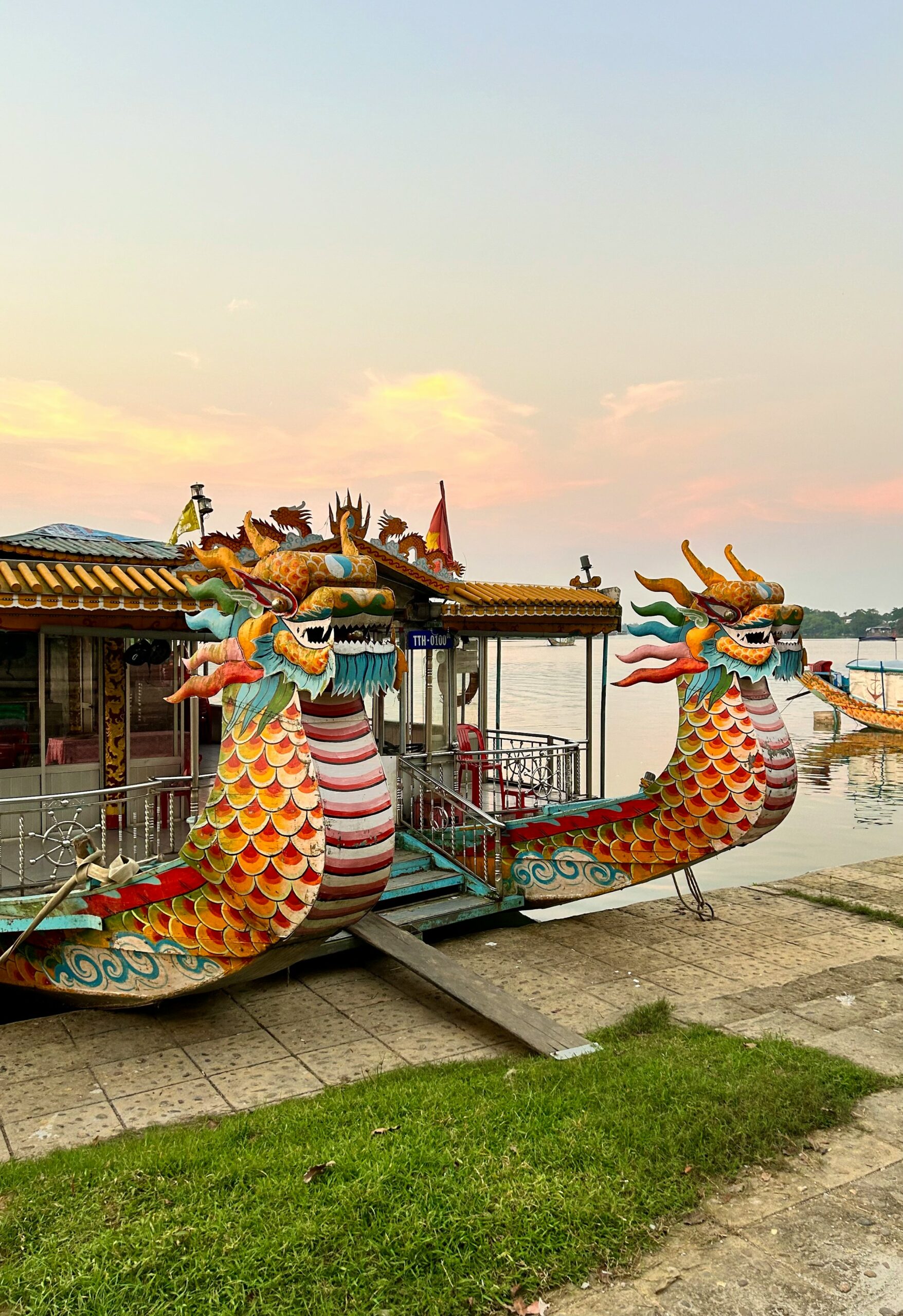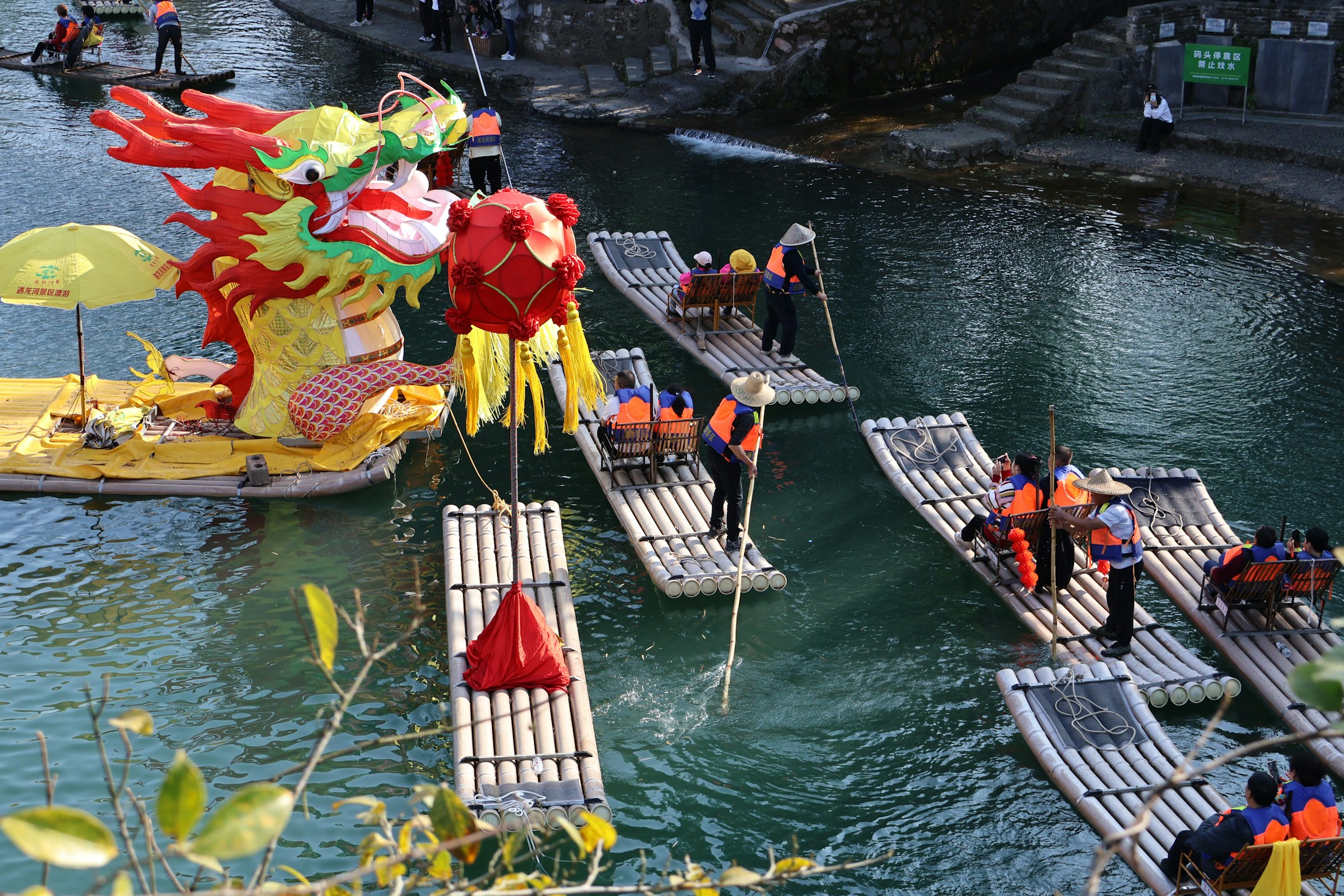Alright folks, there’s a festival in China that brilliantly mashes up adrenaline-pumping sports, ancient legends, seriously tasty food, and a dash of mysticism. It’s the Dragon Boat Festival, or Duanwujie (端午节 – Duānwǔjié) – one of the most vibrant and beloved traditional festivals in the Middle Kingdom. Picture this: rivers teeming with incredibly long boats, adorned with fierce dragon heads, racing at breakneck speed to the deafening beat of drums and the roar of the crowd. And in the air? The unmistakable aroma of sticky rice wrapped in bamboo leaves… Intrigued? Then let’s dive into what this awesome celebration is all
about and where its “dragon legs” come from!
The Fifth Day of the Fifth Lunar Month: A Time of Peril and Protection
Duanwujie is celebrated on the fifth day of the fifth lunar month (which usually lands in June on our calendar). This date isn’t random. In ancient China, the fifth lunar month was considered “poisonous” or “evil.” Hot, humid summer weather would arrive, bringing with it venomous insects and snakes, and diseases would spread more easily. Therefore, one of the main goals of the festival was to ward off evil spirits and protect against misfortune.
People would hang mugwort and calamus on their doors (their strong scents were believed to repel evil and insects), wear scented sachets (香包 – xiāngbāo) filled with herbs and incense, and (traditionally) drink realgar wine (though this practice is fading due to realgar’s toxicity) – all in an effort to boost health and drive away bad luck.
The Legend of Qu Yuan: Poet, Patriot, and… Zongzi?
But the most famous story tied to the Dragon Boat Festival is the tragic legend of Qu Yuan (屈原), a great poet and statesman from the Warring States Period (4th-3rd century BC).
Qu Yuan was an honest and devoted patriot of the Chu state. He advocated for reforms and unity against the powerful Qin state. However, due to courtly intrigue, he was slandered and exiled. Watching his homeland decline and fall to enemies, Qu Yuan, unable to bear it, threw himself into the Miluo River (汨罗江) on the fifth day of the fifth lunar month.
The local people, who deeply respected the poet, rushed out in their boats to search for him, but to no avail. To prevent fish and river spirits from desecrating Qu Yuan’s body, they began throwing rice wrapped in leaves into the water and beating the water with their paddles and drums to scare away evil creatures.
And it’s from this popular version of the story that the two main traditions of Duanwujie are said to have originated:
-
Dragon Boat Racing (赛龙舟 – sài lóngzhōu): Symbolizing the desperate attempts to save the poet.
-
Eating Zongzi (粽子 – zòngzi): Those very rice dumplings that were thrown into the river.
Dragon Boat Racing: Competitive Spirit and Teamwork Incarnate
This, without a doubt, is the main event! Imagine long (up to 20-30 meters!), narrow boats, brightly painted, with intricately carved dragon heads and tails. Each boat carries a team of paddlers (from 20 to 60 people!), working in perfect synchrony, powered by a drummer at the front beating out the rhythm. Another person at the bow is often responsible for “grabbing the flag” at the finish line or making symbolic movements to ward off “evil spirits.”
What’s key about the races:
-
Team Spirit: It’s not just a sport; it’s the embodiment of unity, coordination, and teamwork. One wrong stroke, and the whole boat loses momentum.
-
Traditions and Rituals: Before the races, ceremonies to “awaken the dragon” (sprinkling the dragon’s head with water or, traditionally, blood) are often held.
-
The Spectacle: The cheers of the crowd, the pounding of the drums, the glint of paddles in the sun, the splashing water – it’s an incredibly exciting and captivating sight.
-
International Recognition: Dragon boat racing has become a popular sport not only in China but in many other countries around the world.

Zongzi: The Taste of the Festival in a Bamboo Leaf
Duanwujie wouldn’t be Duanwujie without zongzi! These are sticky rice dumplings with various fillings, tightly wrapped in bamboo, reed, or other plant leaves (which give them a special aroma) and then boiled or steamed.
What kind of zongzi can you find?
-
Shape: Most often triangular or pyramid-shaped, but other forms exist.
-
Fillings: A huge variety!
-
Sweet: With dates, red beans (adzuki), sweet bean paste, nuts, dried fruits.
-
Savory (meaty): With pork (often marinated), duck egg yolk, mushrooms, chestnuts.
-
-
Regional Differences: Every region in China has its own preferences and secret recipes for zongzi. The north tends to favor sweet ones, while the south leans towards savory and meaty options.
Making zongzi is an art form, often a family tradition passed down through generations. People eat them радиочастоте, and gift them to friends and relatives.
Other Duanwujie Traditions and Customs
-
“Painting the character Wang (王) on children’s foreheads”: It was believed that the character “Wang” (king), painted with realgar wine (or now, often just yellow paint), would protect children from evil spirits and illness, as it resembles a tiger’s forehead markings (the tiger being the king of beasts, warding off evil).
-
Weaving five-colored threads: Children would have threads of five colors (green, red, white, black, yellow) tied around their wrists, ankles, and necks, symbolizing protection and good luck. These were only removed after the first summer rain.
-
Bathing in “dragon water”: In some regions, there was a custom of bathing in rivers and lakes on the festival day, believing the water possessed healing properties.
Duanwujie Today: Traditions Alive and Kicking!
Despite China’s rapid modernization, the Dragon Boat Festival remains one of the most beloved and widely celebrated. Boat races draw thousands of participants and spectators, and zongzi can be bought in any store (though homemade ones are, of course, tastier!). The festival is even recognized as an Intangible Cultural Heritage by UNESCO.
If you happen to be in China during Duanwujie:
-
Try to catch a race: It’s an unforgettable experience! Find out in advance where they’re being held.
-
Definitely try zongzi: Experiment with different fillings.
-
Notice the decorations: Scented sachets, bunches of mugwort – it’s all part of the atmosphere.
-
Enjoy the festive mood!
The Final Word
The Dragon Boat Festival is an amazing blend of history, legend, sport, cuisine, and folk beliefs. It’s a day when the Chinese remember courage and patriotism, drive away evil spirits, compete in strength and skill, and, of course, indulge in delicious zongzi. It’s a festival that smells of herbs, rice, and the thrill of a river race. And if you want to see the real, living, breathing, tradition-rich China – Duanwujie will show it to you in all its glory! Just don’t forget your paddle! 😉
